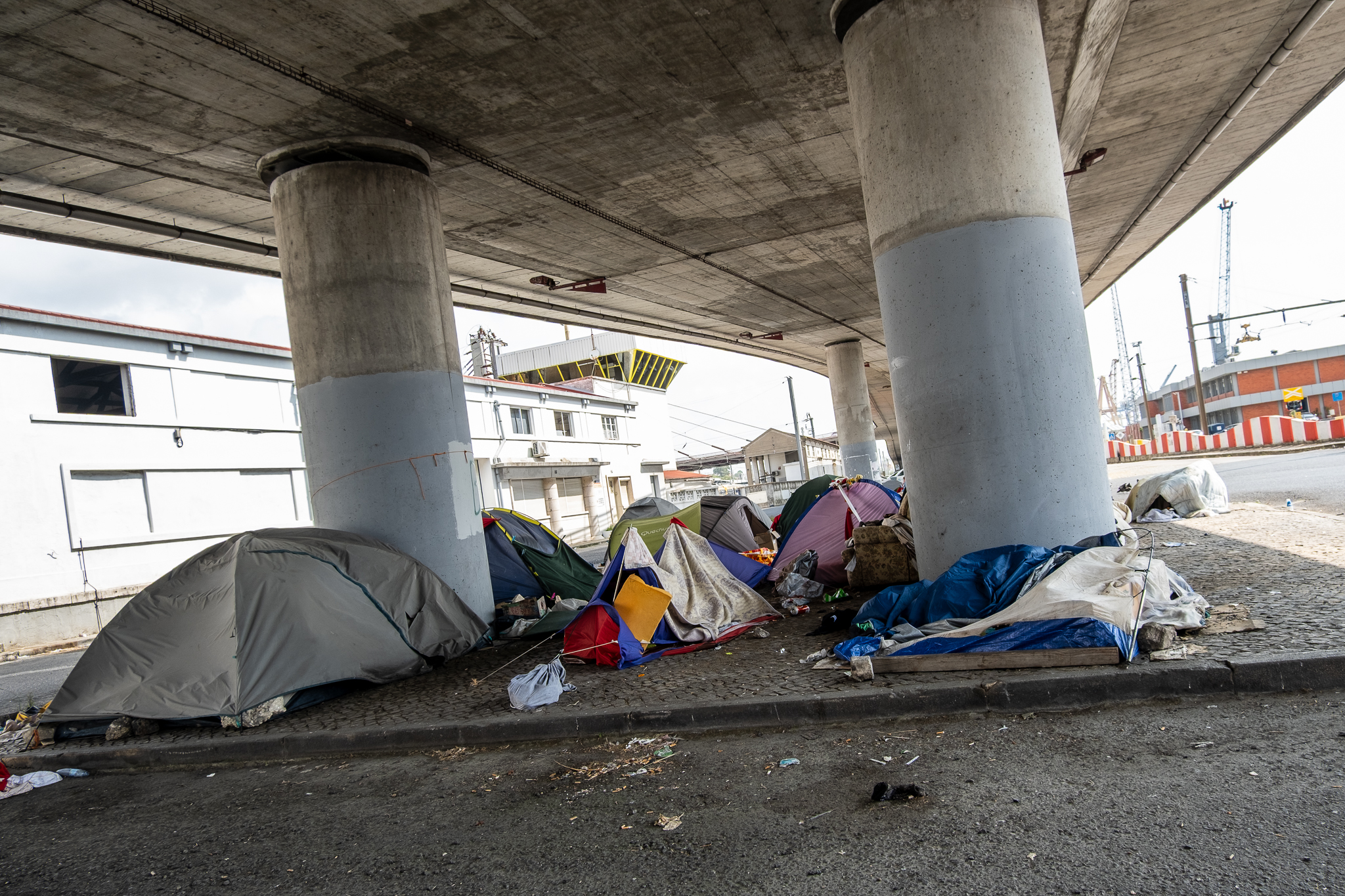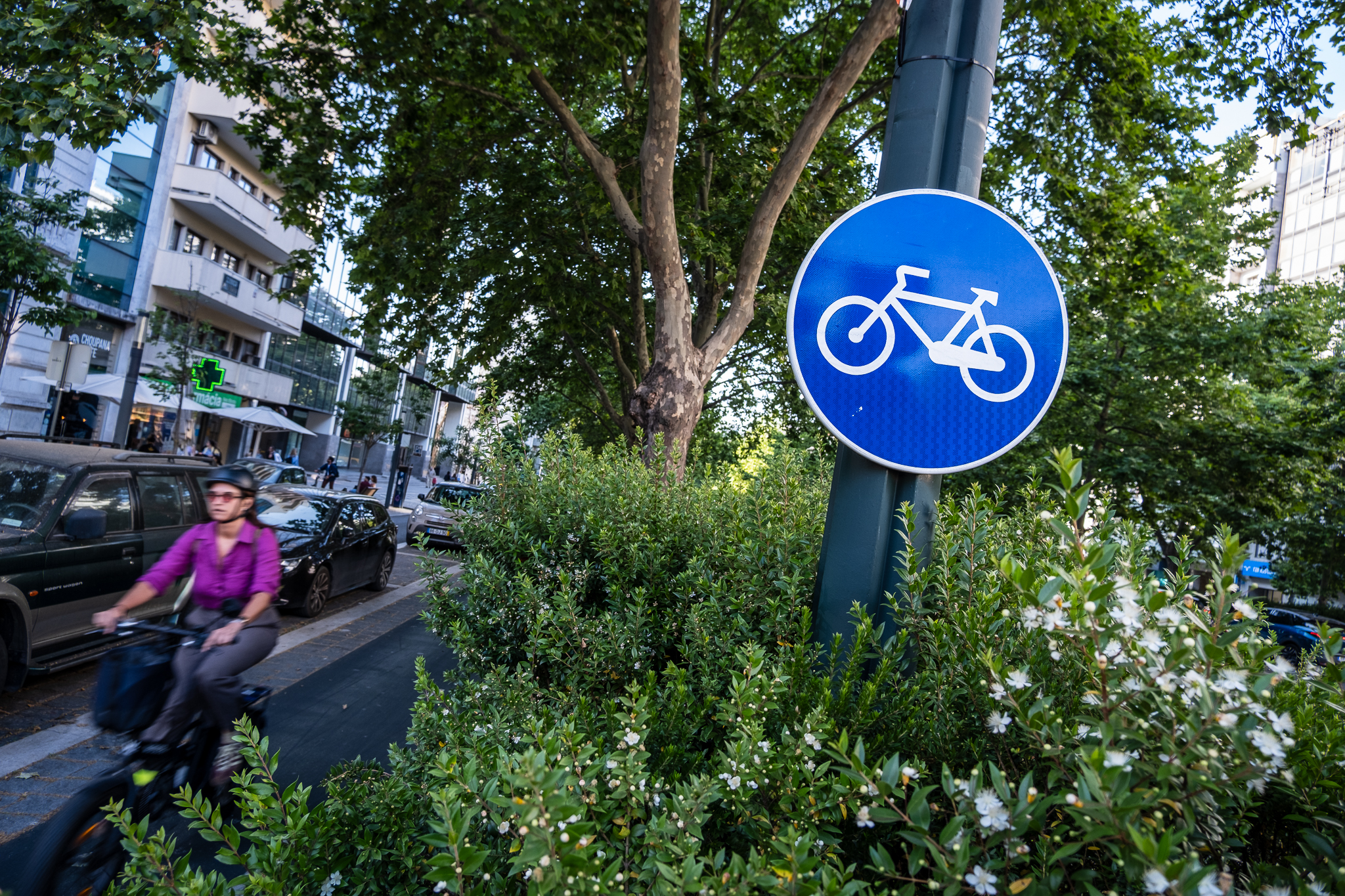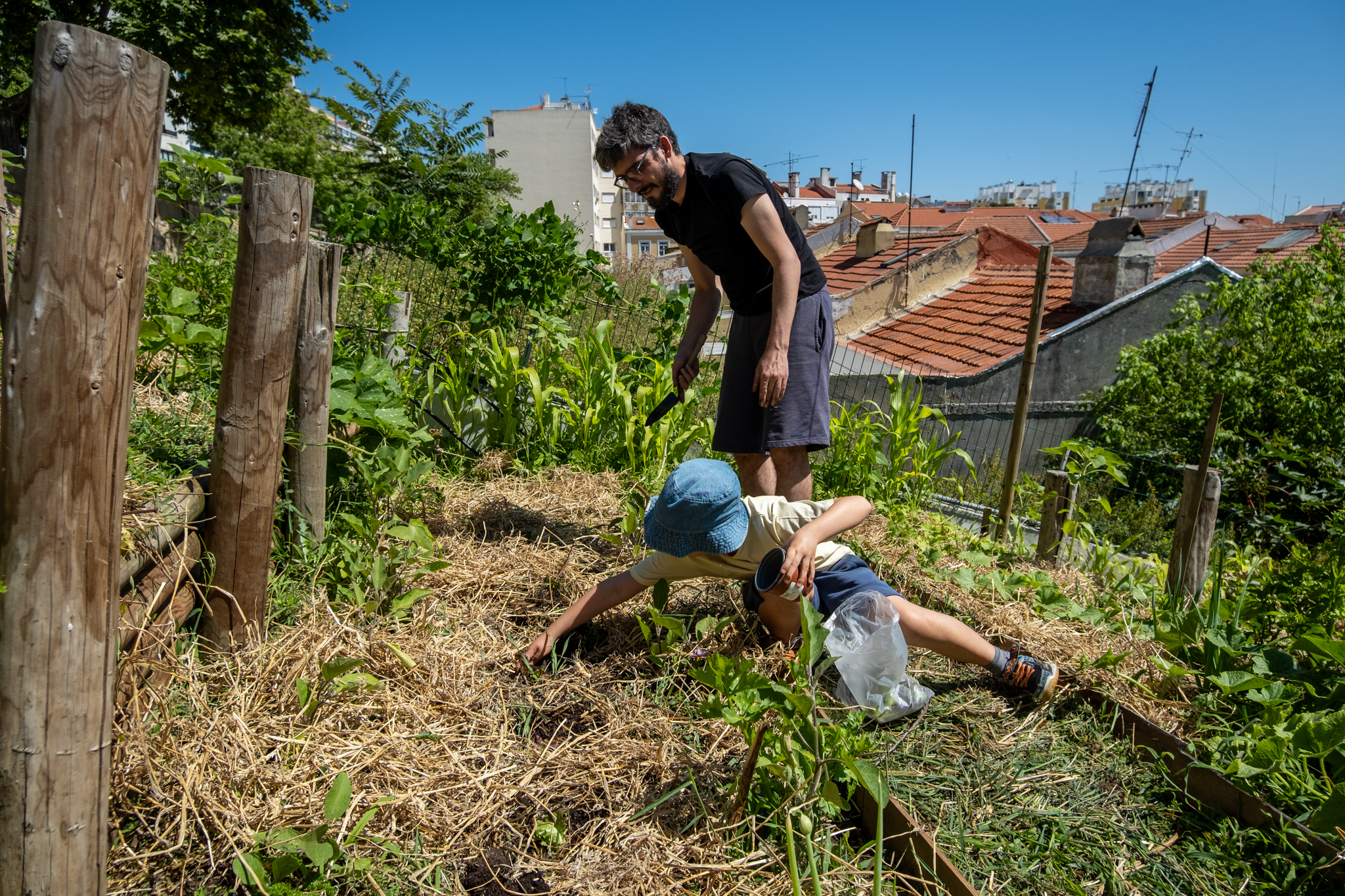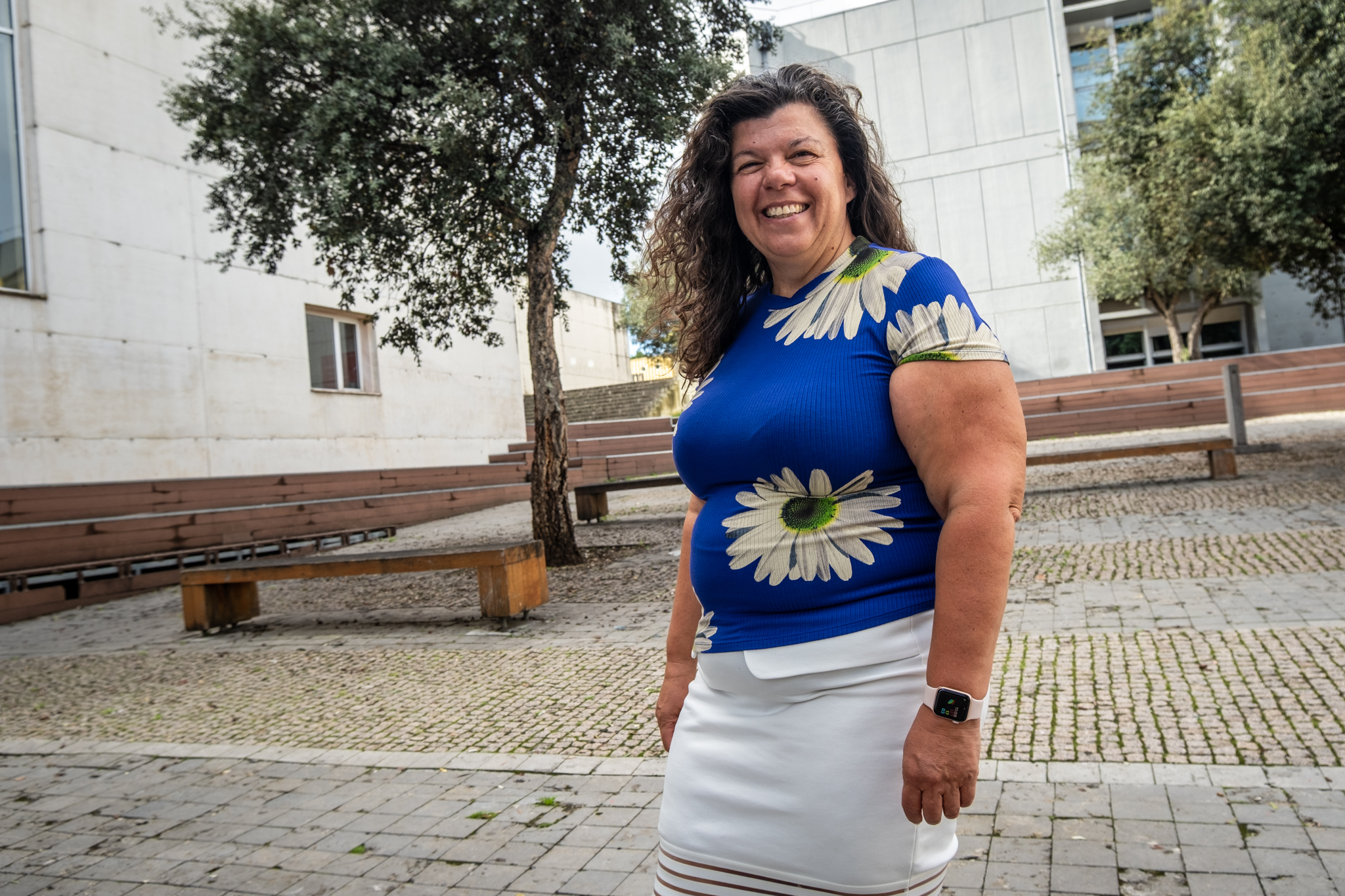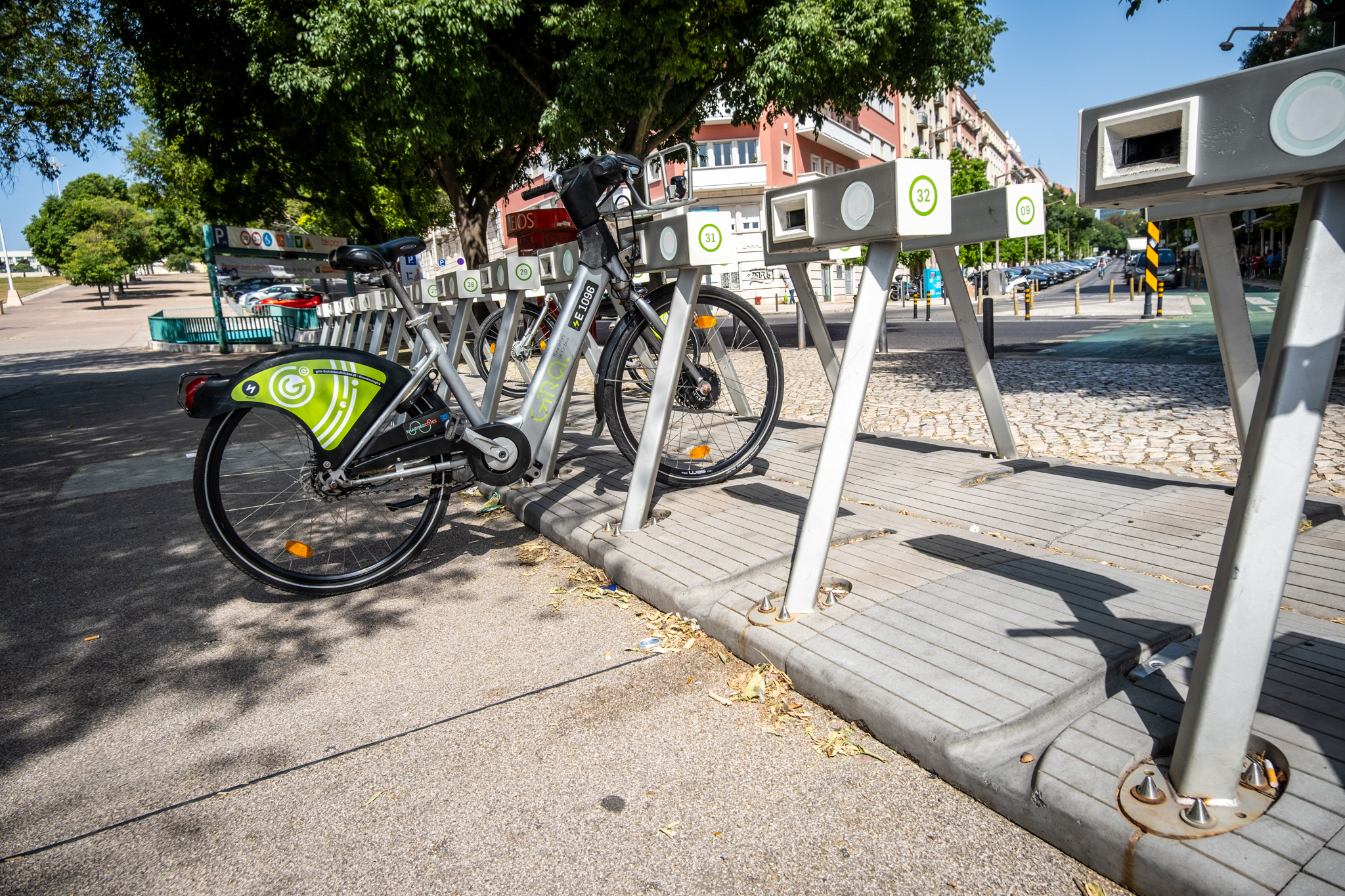The Bicycle Trains are back in town. We went behind the scenes of the municipal program that seeks to encourage children's autonomy in the city and also to get cars off the roads.

Interrupted by bureaucratic issues, which delayed its launch this school year, the Bicycle Trains are finally back in Lisbon. At least once a week, children all over the city can once again start their day in a different way, pedaling to school, accompanied by experienced monitors. The Bicycle Trains are now back with 10 lines, but at least five more are expected by summer.
The history of trains began in 2015 when a father, João Bernardino, started taking his son to school by bike and inviting other parents to join him. Every week - or whenever the opportunity arose - the "CicloExpresso do Oriente" would set off along the streets and bike paths of Parque das Nações, picking up passengers along the way to the last stop, the Parque das Nações Elementary School.
In the 2019/20 school year, the Lisbon City Council decided to adopt "CicloExpresso" and relaunch it as a municipal program, with a new name and a new operational dynamic. "It is a program of the Chamber, framed within the measures to promote active modes and within the scope of school mobility"explains Inês Henriques, head of the mobility studies and planning division of the Lisbon City Hall, to Lisboa Para Pessoas. Bicicultura, a cooperative focused on promoting two-wheeled mobility and which João co-founded, was the municipality's obvious partner in getting the project off the ground. The Bicycle Trains were born (or reborn) with a pilot in two schools in the same area where it all began, Parque das Nações: the Basic School with the same name and Colégio Pedro Arrupe. "This pilot at Parque das Nações was intended to be an embryo for the formal creation of the program"says Ines. "We launched the trains in a comfort zone, and then we decided to get out of the comfort zone." By the end of that school year there were already trains in five schools.

In this 2021/22 school year, the Trains are not starting until the end of the 2nd school term essentially due to delays in bureaucratic processes. The funding on the City's side for Bicycle Trains to operate again was not dealt with in time by the previous executive and was hung up by the election agenda, which imposes limits on public contracting on the eve of elections. It was necessary for the new executive to give priority and continuity to the program, taking it to a town hall meeting so that, in January, the funding of 55 thousand Euros could be approved.
With the paperwork done and the accounts up to date, efforts were concentrated on relaunching the Trains as soon as possible. Registrations were opened by the municipality through its website in the schools where the municipal program was running at the end of last school year and in new educational institutions that showed interest. Namely EB 1 Parque das Nações and the Pedro Arrupe Collegein the parish of Parque das Nações, the D. Filipa de Lencastre Group of Schoolsin Areeiro, the EB 1 of Telheiras and the German Schoolin the Telheiras neighborhood, the EB 1 Sarah Afonso, a EB 2/3 Paulino Montez and the João de Deus Preschoolin Olivais, and EB 2/3 de Paula Vicentein Belem.
Grow with the same budget
"We have a budget that allows for a certain number of trains and what we have been managing is to scale the program to more schools with the same money because we are involving partners, like Parish Councils"Ines points out. "All it takes is for a council to make one or two people available to us, and it's already a huge addition. We can already create another train in that parish, extend the train that already exists for more days, or even create round-trip trains." At this point, the vast majority of trains is executed by Bicicultura, which received for this school year a funding of 55 thousand Euros from the municipality to hire people who can accompany as monitors (or drivers) the trainsIt is the first step in the process, defining the lines and following up on registrations and participants.
When a Junta de Freguesia decides to support one or more trainsMaking its human resources available means that Bicicultura can "save" its financial resources and invest them in another line, in another parish. The same happens with parents who volunteer to accompany trains or even do the whole practical operation of them. To circulate, each train has to respect the ratio of one adult for every four children, so that one train of eight passengers will have two driversone main and one auxiliary. Like the drivers recruited by Bicicultura, people from Parish Councils or parents who perform this task also receive personal accident and civil liability insurance, as well as specific training. "We have been able to create more trains with the same [budget]. To me, this is the magic of the Trains."she points out.

Bicicultura strives for a proximity between drivers and the parents, so a telephone contact after the enrollment, where possible doubts about the program are clarified, is a fundamental step in the preparation of the trains. Each school's train is planned according to enrollments and work starts from scratch. In case enrollments from the previous school year remain for the new year, or it makes sense, the existing route is maintained with little or no changes. But in other cases, you have to start from a blank slate, looking for a route that accommodates as many enrolled children as possible, has a reasonable length to be feasible, and is safe.
The route does not have to pass through bike lanes, because there are many areas of the city where there is no such infrastructure, intending to show that the use of bicycles can be made in neighborhood streets in a model of coexistence, as long as the rules on both sides are followed. "We realize that the cycling infrastructure is a point in favor, although it is not determinant and cannot be, otherwise there could not be trains in many places"says Inês. The use of the Municipal Police for harsher areas, where it is necessary "cut some sections at the moment of train passage" or even follow the trainsis thought of, but "it hasn't been accurate yet". "But we are always prepared."
Lines depending on demand
"The design of the line is made according to demand. We don't offer a closed line".says Inês. When the municipal program starts each school year, parents sign up indicating the zip code of their residence, but when the line becomes more consistent, it is already publicized as such, and with the respective stops, and parents can sign up at the desired stop or indicate another zip code if none is suitable. "We want every kid who signs up to have a response, to be able to get on the bandwagon." We try to have the routes pass by each child's door or with small detours - the participation of fathers and mothers in this process is also a constant. Not to be watertight, the lines of trains may change with new enrollments - suddenly it may make sense to take a detour to pick up a new child and/or make a small change to the route without making it longer so that the experience for that new enrollee is more enjoyable. Yes, the subscriptions never close and over time it is normal to have new ones. passengers interested in the route; the Chamber explains that, as the trains As they gain presence in the streets, demand increases - and other interested schools also appear.
The work of defining the route is not immediate, as it implies conjugating countless variables and the city's urban geometry - crossed in some neighborhoods by viaducts - does not always facilitate the design of attractive lines for current and future stakeholders. This task falls to Bicicultura, which, based on the applications received from the Lisbon Chamber side, is in charge of all the technical operation and execution in the field. "The general coordination of the project is up to the Chamber, communication is up to the Chamber. In other words, all transversal issues are assured by the City Council. Then there is an intermediate level of coordination that presupposes technical knowledge that not all associations have and which involves, for example, the design of the line. And then there is a third level which is pure and simple execution, which involves having monitors who execute that line".Ines points out. "We're still studying how we're going to organize these three levels, with the technical and operational coordination levels being with Biciculture at the moment."

The Lisbon City Council admits that the operation of the Bicycle Trains may be extended to more local entities. After all, it is a municipal program and this means that as the project grows in the city with more schools, other partnerships may be made under the RAAML (Regulation for the Allocation of Support by the Municipality of Lisbon)which seeks to support associations, cooperatives, and other entities that contribute to the cultural, social, recreational, and sports development of the city and that are considered to be of municipal interest. "Our idea is to scale up this program" and it can make sense "we open a call to the associations that we understand meet the technical conditions to operate the program. The associations apply and can be supported by the Chamber to the extent of the operation they carry out. This is foreseen. It didn't happen this school year, but, if the conditions are right, we hope that it can happen this way next year".. For example, a Bethlehem entity can operationalize the trains in that parish, while another in Marvila materializes the program in that part of the city.
The Bicycle Trains are most popular with 1st grade children, but there are usually 2nd grade registrations as well but it is not always possible to make the two levels of education compatible due to time incompatibility: in the 2nd Cycle there is a greater difference in entry times between different classes, while in the 1st Cycle it is common for the younger ones to enter at eight. On the other hand, the dynamics of trains with younger and older students can also be difficult - it can happen that 2nd graders get tired of the slower pace of 2nd graders, but also that "the older ones help the younger ones"As Sofia Knapič, also from the Municipal Mobility Department, tells us from an experience in a train last school year at the D. Filipa de Lencastre School Grouping that she herself accompanies.
There are and can be trains informally organized among the community. But by coming to the municipal program, the children receive the personal accident and civil responsibility insurance and the whole communication and operation structure of the Lisbon City Hall. This is what happened with the German School Train, which started in September on the initiative of mother Rita Ferreira and other parents; with the return of the municipal program, the German School joined in. O train of the German School was, on the other hand, one of those who never stopped even with the Bicycle Trains officially suspended. Also at Parque das Nações, father Gonçalo Peres continued to take children to the Parque das Nações EB on Fridays whenever he could. "All Bike Trains [under the municipal program] have to have coordination from the City. There are no trains that don't have our monitoring, that aren't communicated by us, and that don't have our rules."explains Inês Henriques, assuring that the municipality allows and respects trains that arise and operate autonomously in the city. For the city manager, it is evident: the Lisbon City Hall gives confidence. "There are a lot of parents who don't go on the trains. They turn the kids in and go about their lives. The kids go alone inside the train." And they do this "from day one"Sofia adds. "This reveals that parents have confidence in that structure. It's different if they hand their children over to a train that is operated by a set of parents they know well. When it comes to our children, we really have to have trust. And I think that's the difference."adds Inês.

Benfica and São Domingos will also have trains
In April, it should start trains in the parishes of Benfica and São Domingos de Benfica, as part of a winning proposal of the Participatory Budget (PB) 2021. The project Pedaling Schools intends to launch trains at EB 2/3 Professor Delfim Santosin Externato Fernão Mendes Pintoin the Benfica Teaching Cooperative and in EB 1/2/3 Pedro de SantarémIn addition to this, we will also provide learning about bicycling indoors and in the city, raise awareness in the school community about safe behavior when parking and riding around the school, and provide bicycle stands at school for physical education classes and other school activities.
According to the Lisbon City Hall, the trains of bicycles in these school clusters can only not be integrated into the municipal program, using the same name and the same communication, because the rules of the PB do not allow it. But, in practice, the rules and the mode of operation of the trains will be the same. "They're going to follow the rules of the program and it's going to be called Schools With Pedal, and they're going to be in a territory that we hadn't tested yet." Sofia points out. With 622 votes, the Pedaling Schools was one of the winning projects of the PB 2021 and is the only one already running in this edition.

Promote the autonomy of children in the city and take cars off the streets, offering the little ones at least one different morning a week, is a central goal of the municipal Bicycle Train program. One day, this program may be something structural in the city's panorama, covering all the educational institutions and with a budget that allows that goal. The Bicycle Trains have, however, been growing in the city and conquering its position within the Lisbon City Hall - proof of this was the continuity of the program by the new council of Mobility, while other initiatives such as the support to the Selim social bicycle bank or the funds for the Bicycle Acquisition Support Program (PAAB) were suspended. "All in all, the Bicycle Trains are a great practical lesson in getting around the city"Sofia Knapič summarizes. "I know it's different to get around in a group than it is to get around on your own, but sometimes the kids will get together and start to walk themselves." "The ultimate goal is autonomy for the children...and even the parents"he adds. "We have several parents who started cycling in the city after they started following the trains. They started making the returns with the kids and then biking to work."


